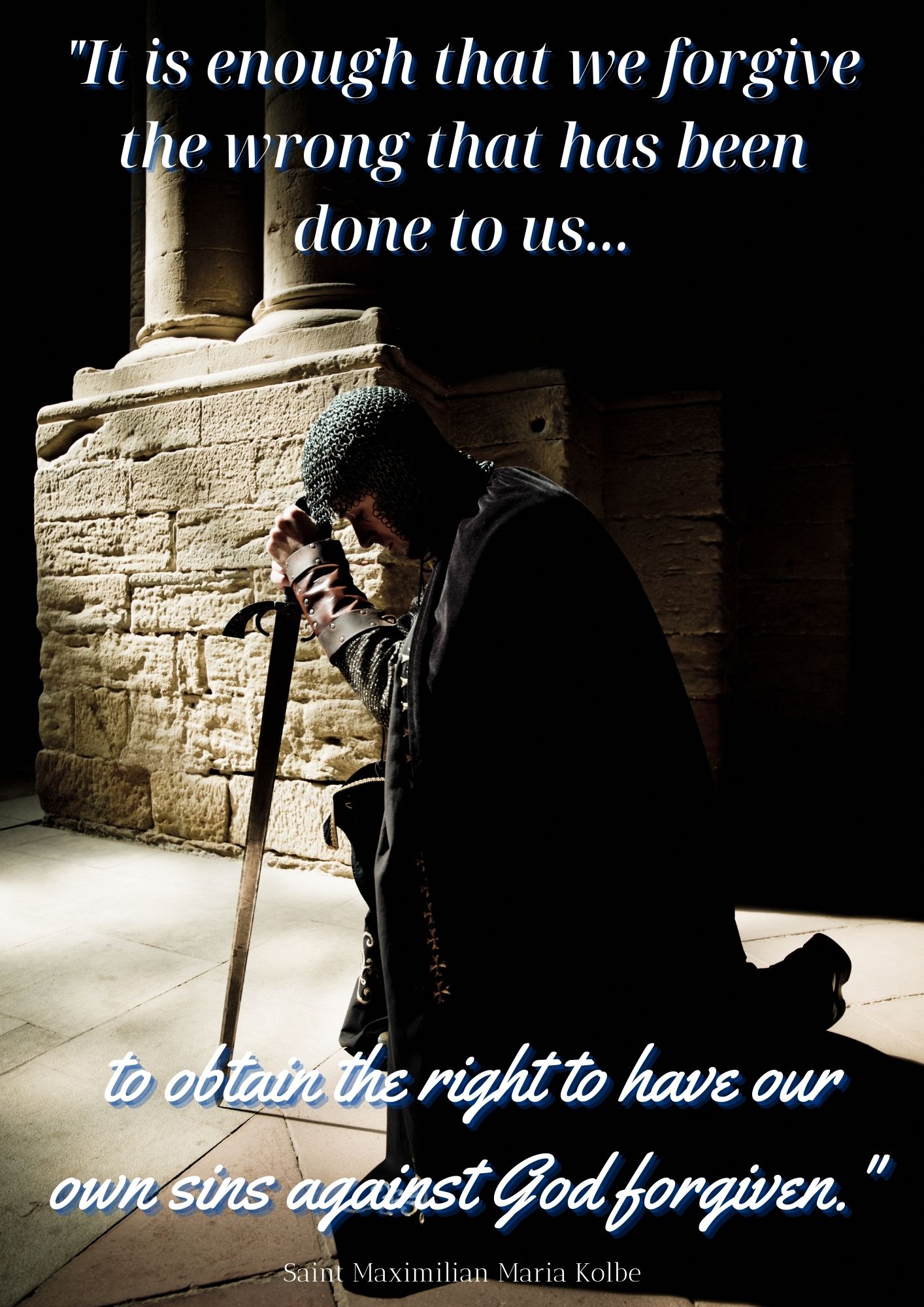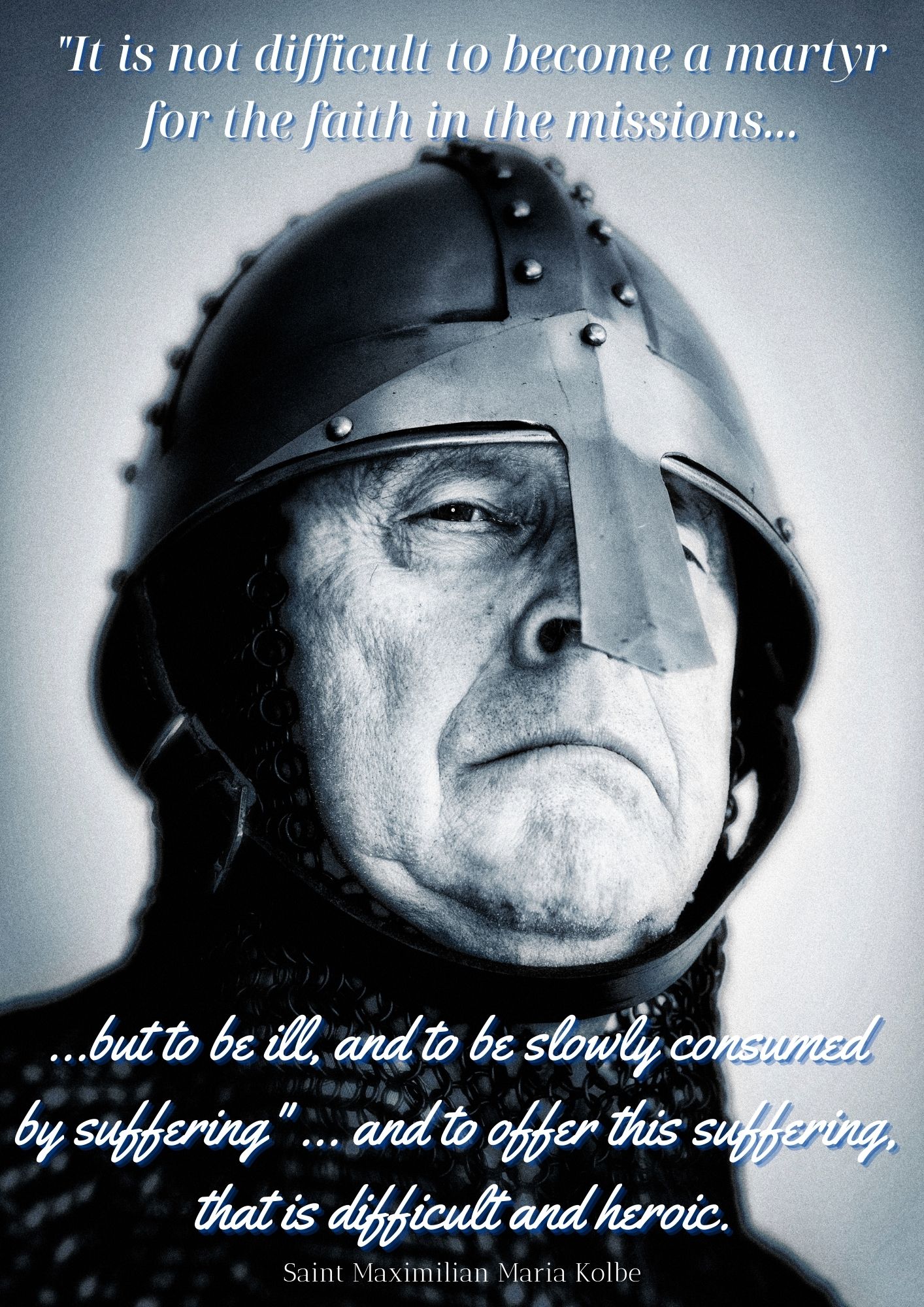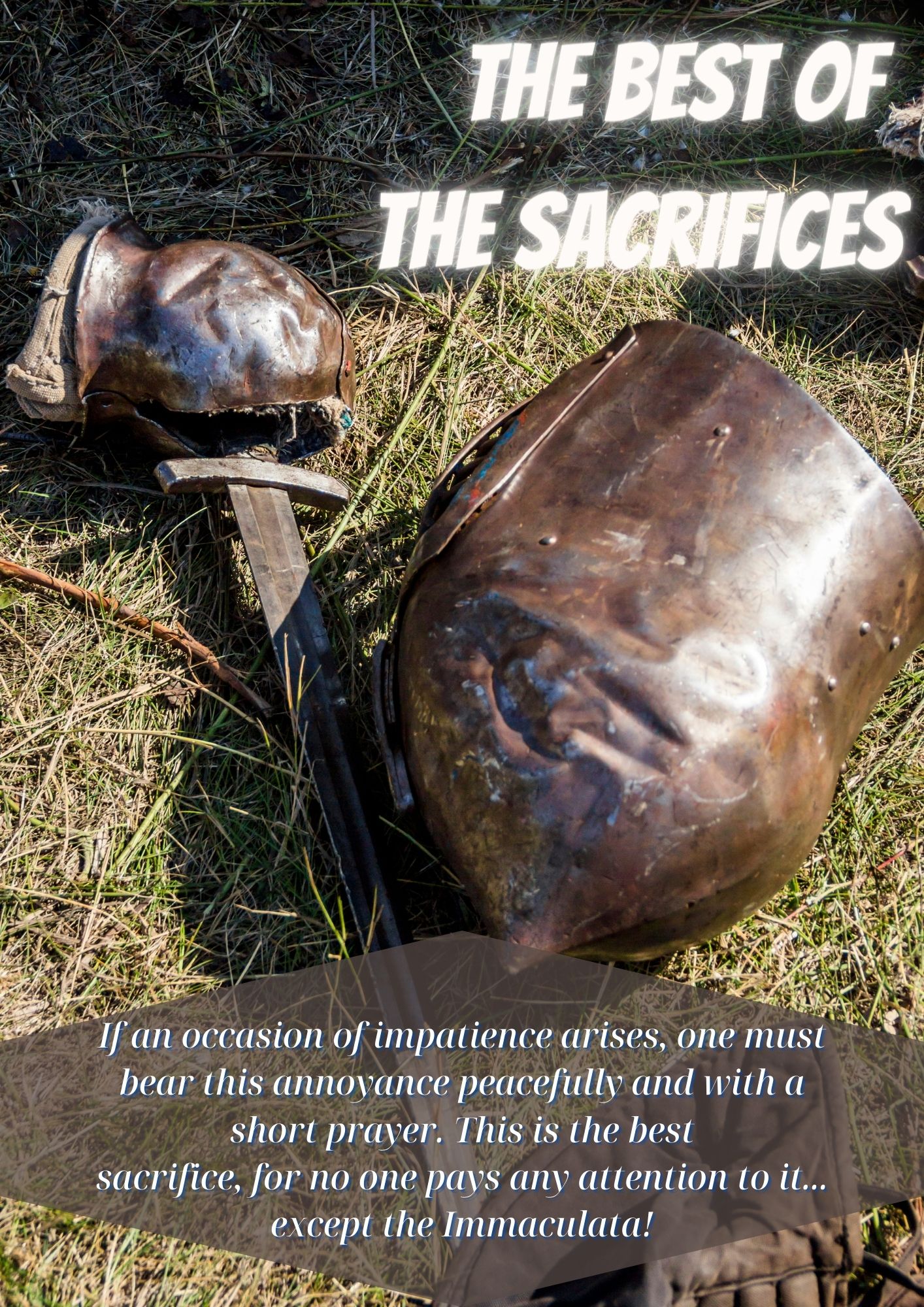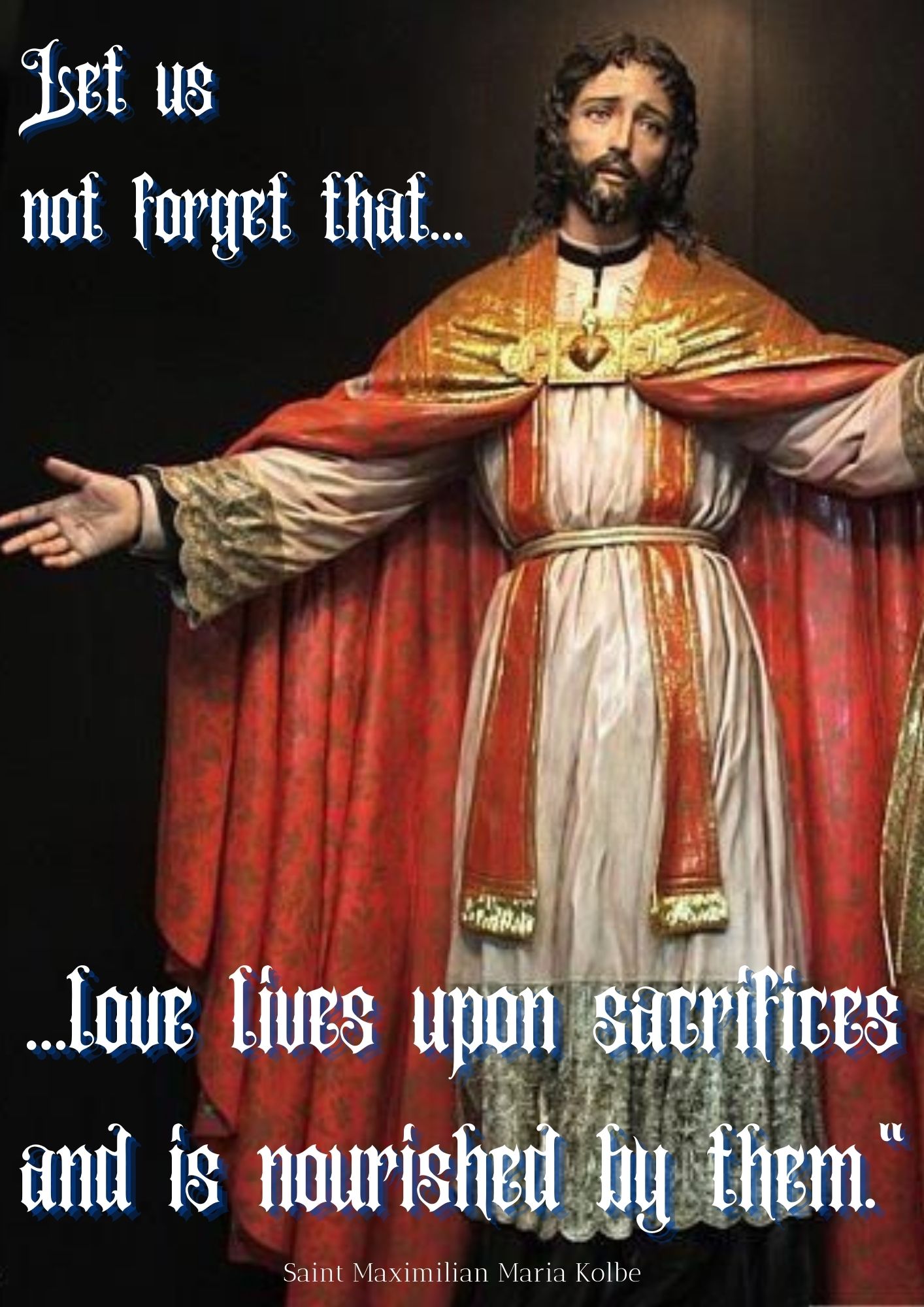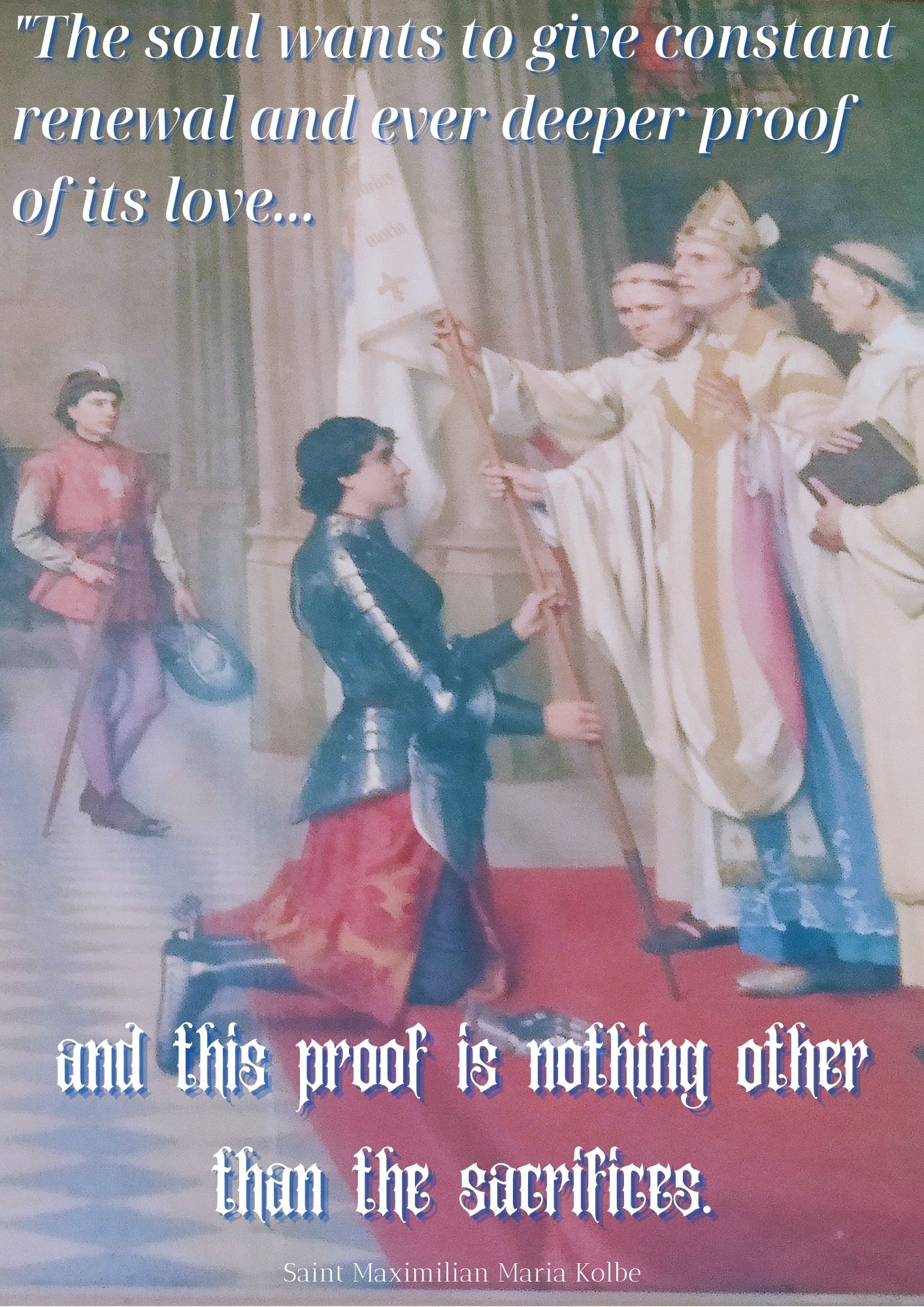The suffering offered obtains the forgiveness of my sins

“Pray and offer sacrifices, for so many men go to their eternal ruin because there is no one who prays and makes sacrifices for them.” These words of the Mother of God, pronounced on August 19, 1917 in Fatima, confirm and illustrate the mystery of the communion of saints — namely, the fact that the salvation of many souls depends upon our little prayers, sacrifices and sufferings. Thus we understand why Fr. Kolbe insisted so much on this point:
“In order to make our work for the good of souls easier, God allows us to have various crosses to bear, whether or not they be dependent upon the will of others, whether they result from good will or an unjust will. Here is an enormous field with countless sources of graces to be tapped. Especially useful among these are the pains that are caused us by others. With what holy hope do we actually pray in the Our Father: “and forgive us our trespasses, as we forgive those who trespass against us”! After all, the Lord himself taught us this prayer. And so complete forgiveness of the wrong that has been done to us is enough to obtain the right to have our own sins against God forgiven. How difficult this would be, if we had nothing to forgive! On the contrary, how fortunate we are when we have the opportunity to forgive good-sized crumbs of offenses! Granted, human nature trembles at the prospect of suffering and humiliation, but in the light of faith they are so important for the purification of our soul, such excellent means, because they do contribute to a more fervent union with God and thereby to more effective prayer and to stronger missionary zeal.” (Letter to Mugenzai no Sono, December 1, 1940.)
True sacrifice …
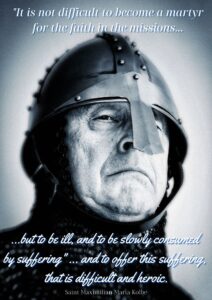
One should beware, however, of idealizing this weapon. Sacrifice in most cases does not consist of a heroic, dramatic gesture that is visible to all, as one might dream of a glorious martyrdom, for instance, that people would talk about with admiration long afterwards.
A few days ago, as I was speaking with the friars about the missions, many of them demonstrated willingness to devote their lives to God’s cause in far-off lands. It is not difficult to become a martyr for the faith in the missions. That is much easier than being sick and being consumed slowly over the course of many months and years by suffering, without any hope whatsoever of recuperating. Martyrdom in most cases lasts only a relatively short time, whereas sickness destroys the body slowly but surely, and so one must attain long-term heroism. When a sick person struggles to reach the voluntary heroism of the sacrifice that proceeds from a burning love for God, then he doubtless approaches God with giant steps and is united with Him from moment to moment with ever stronger bonds of love. Happy — I repeat — happy is such a soul…(Conference 8.11.1936 ; KMK, s. 94)
…does not need any spectator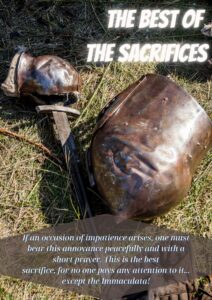
The best mortifications are those which arise from one’s daily duties and are thus independent of our will, for those which we impose upon ourselves flatter our self-love. If something happens that incites us to impatience, then we should endure this peacefully. That is the best mortification, because no one can observe it, and in the course of the day there are many, many such opportunities. (Conference, November 8, 1936)
“Sanctity lies in the little, seemingly insignificant things, St. Thérèse of the Child Jesus used to say, and she herself has given an example of this: Patroness of all the missions! Where did she get such “expertise” in missionary matters? Was she perhaps a missionary in many pagan lands? Did she shed her blood as a martyr? Not at all. She never crossed the threshold of her cloister in Lisieux. During her life here on earth she worked no striking miracles, but rather offered herself up utterly and entirely in her ordinary, everyday routine. Therefore it is not a question of what we do, but rather of how we do it, for what intention and with how much love. What was her intention? To give joy to the Savior, to carry her daily crosses out of love, to work and to live for love of him, to be a little child that encompasses the hearts of her father and mother with little proofs of love. Everyone can and must be such a missionary.” (Fr. Maximilian Kolbe Manuscript, The Patroness of all Missions. ; CDM, p. 211.)
The only way to prove that we love is to suffer patiently and offer your suffering
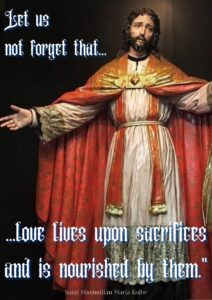
Only in sacrifice is love demonstrated. And the more someone loves God and the more that person is a Knight of the Immaculata, the more sacrifices he will make, the more he will suffer and be crucified with the crucified Savior.
Let us reflect on the fact that love lives upon and is nourished by sacrifices. Let us thank the Immaculata for interior peace, for the delights of love, but let us not forget that all that, though good and beautiful, is not the essential thing in love, and that love can exist without all these feelings, and only then is it perfect love. Its high point is the condition in which the Lord Jesus prayed on the cross: “My God, my God, why hast Thou forsaken me?”
Without sacrifice, no love…
Sacrifices of the senses, especially of the eyes, of the senses of taste and hearing, but above all the sacrifice of the understanding and the will in holy obedience.
Like the love of the Immaculata, like the love of God’s goodness in her, of the Divine Heart in her, so this love should embrace and permeate us, too, and then sacrifices for souls become a necessity. Then the soul will offer ever new and ever more profound proofs of its love, and these proofs are nothing else than sacrifices. Therefore I wish others and myself as many sacrifices as possible. (Letter to Mugenzai no sono du 9.04.1933 ; CDM p. 147.)
How short life is, how quickly time passes! Let us spend it, or rather, let us give it away, let us sacrifice it, as dearly as possible. The more suffering, the better, for after death one cannot suffer any more — the time in which to demonstrate love is short, and we only live once!” (Letter to the brothers from Lvov on 17.03.1933 ; CDM p. 146)
PHOTOS GALERY
TO KNOW MORE ABOUT THE WEAPONS OF THE KNIGHTS
The weapons of the Knight (6 × 2 po)

